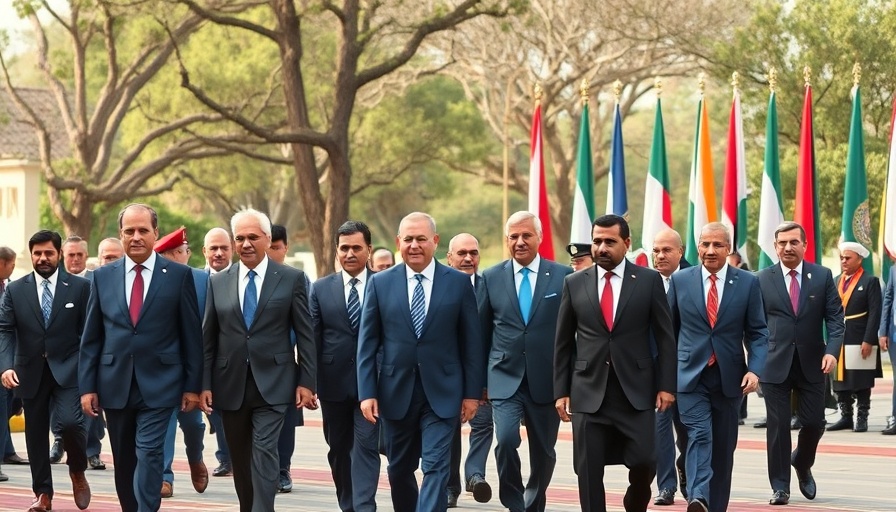
Understanding the Current Peace Negotiations for Ukraine
The conflict between Ukraine and Russia has reached a pivotal moment as Ukraine expresses its readiness to accept a U.S.-proposed 30-day ceasefire. Following critical talks in Saudi Arabia, U.S. Secretary of State Marco Rubio confirmed that Ukraine is prepared to halt hostilities and open discussions aimed at establishing long-term security. This development marks a significant diplomatic breakthrough in a conflict that has persisted for over three years, raising hopes for a resolution that could benefit the region and beyond.
The Dynamics of Diplomacy: Is Peace Within Reach?
Recent meetings between U.S. and Ukrainian officials have indicated a shift in strategy focused on peace rather than prolonged conflict. In a move praised by President Volodymyr Zelensky, the proposed ceasefire aims to not only halt current aggression but also encourage Russia to reciprocate in favor of diplomacy. As Rubio stated, "The ball is now in their court," suggesting that the Kremlin's response will dictate the next steps in this tense geopolitical landscape.
U.S. Military Support Resumes: A Key Factor
In conjunction with the ceasefire proposal, U.S. military assistance to Ukraine has been resumed, enhancing the latter's negotiating position. The lifting of a previous suspension on intelligence sharing aims to reinforce Ukraine's defenses while sending a clear message to Russia regarding America's ongoing support. This critical axis of aid underscores the intention behind U.S. involvement in the conflict and the broader implications for international relations moving forward.
The Stakes of the Ceasefire: What It Means for All Parties
Should Russia accept the ceasefire, it would not only restore some level of peace in Ukraine but also pose significant questions regarding the long-term viability of an escalated military presence. Critics argue that a premature ceasefire might embolden Russian forces to regroup, while supporters assert that any reduction in violence is a step towards lasting peace. With lives at stake, the urgency for dialogue remains paramount, as failure to achieve a ceasefire will likely perpetuate suffering for both civilians and combatants alike.
The Broader Implications for International Policy
International reactions have shown cautious optimism; the European Union, for instance, has been engaged in discussions regarding its involvement in peace processes. As global powers assess their positions, the successful negotiation of a ceasefire could reshape alliances and set a precedent for international conflict resolution. The importance of collaboration among nations has never been more evident, particularly in light of the shifting dynamics presented by this conflict.
Concluding Thoughts: What Comes Next?
In a moment where peace seems tantalizingly close yet incredibly fragile, it is crucial for both sides to come to the table with sincere intentions. As analysts watch the responses from Moscow, the world holds its breath, hopeful for an outcome that provides stability in Eastern Europe. Continued pressure from the United States and European partners may prove essential in ensuring that dialogue prevails over armed conflict.
For those seeking to stay informed, understanding these multi-layered negotiations is vital, not only for grasping the current state of affairs but also for anticipating what future discussions may unfold. Engaging with the latest news articles can help you stay updated on this developing situation, fostering a deeper comprehension of the implications for us on a global scale.
 Add Element
Add Element  Add Row
Add Row 



 Add Row
Add Row  Add
Add 


Write A Comment